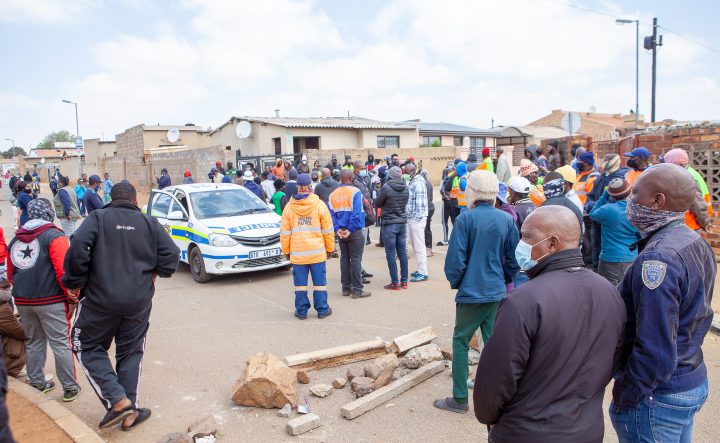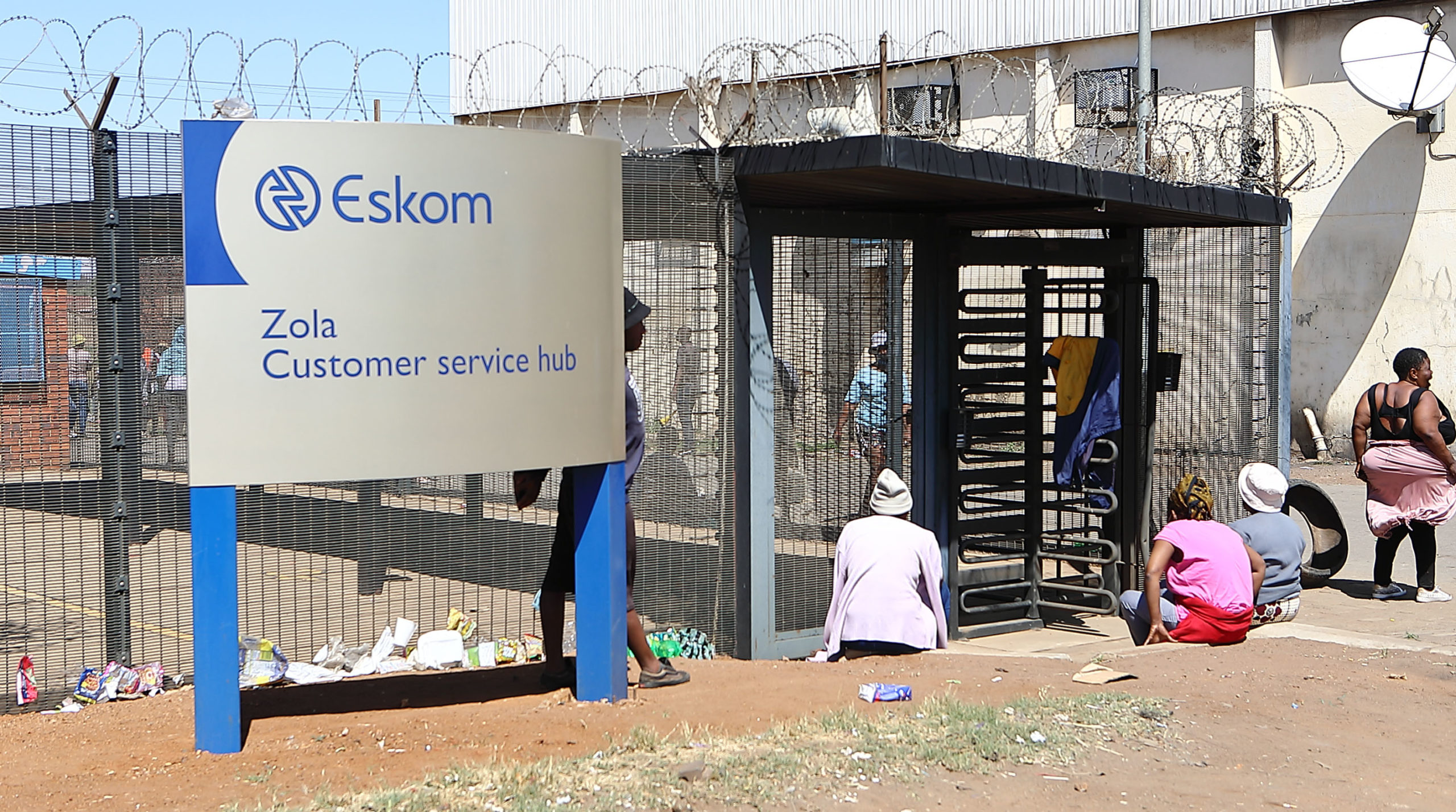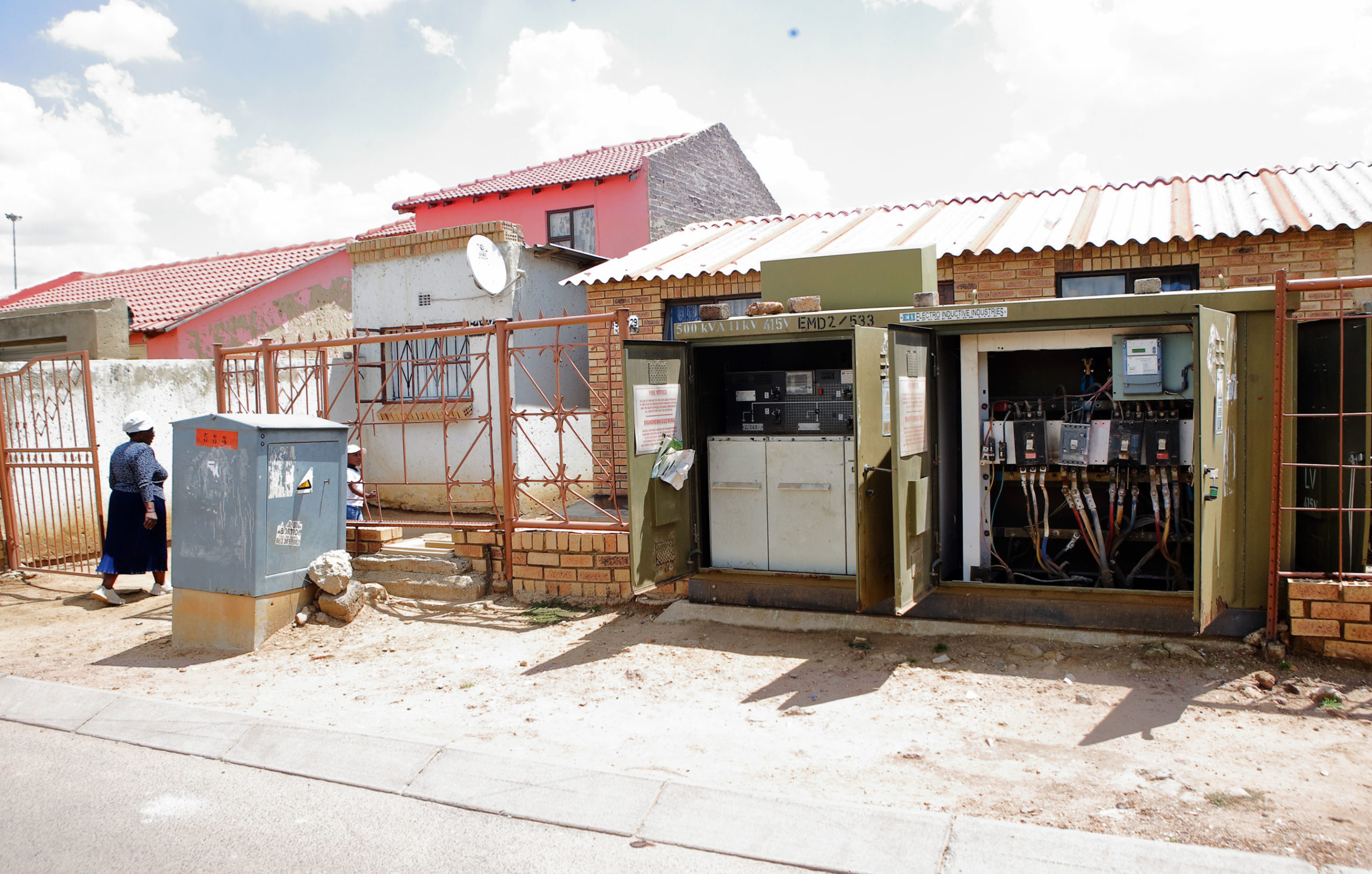ROAD TO 2021 LOCAL ELECTIONS
My Vote Counts: Electricity crisis ‘is part of bigger problem of governance’

People living in South Africa are dying from a lack of access to water and electricity, said a panellist during a webinar on local governance and community responses on Thursday.
The electricity crisis is reflective of a “general crisis of the working class in South Africa,” said Dr Trevor Ngwane of the Soweto Electricity Crisis Committee.
Ngwane and Dr Tracy Ledger from the Public Affairs Research Institute spoke at a webinar on Thursday hosted by My Vote Counts about how communities respond to crises, with particular focus on electricity. The webinar was part of a two-month series by My Vote Counts, on “local government in crisis”.
Ngwane said the problem of electricity was part of a bigger problem of governance in South Africa.

Emndeni residents arrive to protest at Eskom’s Zola customer service hub in Soweto on 14 September 2021. The group was protesting over the lack of electricity in the area. (Photo: Gallo Images / Fani Mahuntsi)
In Soweto, issues of electricity are widely acknowledged. In Chiawelo suburb, some households have not had electricity since June 2020. Chiawelo is where Ivy Ramaphosa (sister of President Cyril Ramaphosa) lives. At the weekend the Sunday Times reported that residents had protested in front of her house in a bid to attract her brother’s attention to blackouts in the area.
Read in Daily Maverick: Government needs to act on Eskom and Soweto residents’ debt duel.
Ngwane said the electricity crisis was a reflection of a “general crisis of the working class in South Africa”. He said people were dying because “they do not have an adequate supply of water and electricity”. The 2016 Community Survey found that 7.3% of people in South Africa do not have access to electricity, while 86.2% had access to water via a local or regional service provider.
Ledger said fewer than two million households received water allocations due to their indigent status. She said municipalities often don’t provide electricity or water services to indigent households, despite the onus being placed on municipalities to, for example, inform Eskom of indigent households who require free electricity. Other problems indigent households face include the drawn-out process to prove their need.

A broken electricity box exploded in Buthelezi Street in Zola, Soweto on 3 March 2021. Residents reportedly had no electricity for months because of broken transformers. (Photo: Gallo Images / Fani Mahuntsi)
She said it was “ridiculous” to make people who can’t afford food pay municipal water and electricity bills and that this was “increasing inequality”. The other problem was that communities themselves don’t know that municipalities offer services for indigent households or that municipalities claim that they cannot afford these services — despite provisions by the National Treasury for such services.
A guest at the webinar, Phindile Kunene, said people don’t believe that municipalities and other spheres of government do not have money to support the poor, as seen through the money that was lost in the VBS scandal and other corruption scandals.
Ledger said government officials should work to solve these issues, as they were “not something that comes every time it’s ‘Vote for me time’ ”, in reference to the upcoming elections on Monday, 1 November.
My Vote Counts will host its next webinar on 7 October, under the theme “What happens to local economies”. DM















 Become an Insider
Become an Insider
It’s not a ” governance problem”- it is a lack of governance and accountability, along with corruption and incompetence. Cadre deployment – will it end before we resemble Beirut?
This looks interesting ? Google “My Vote Counts” to register for the webinars
Local government in crisis: What does it mean? — 28 September 2021
Local government in crisis: How do communities respond? — 30 September 2021
Local government crisis: What does the crisis mean for local economies? — 7 October 2021
Communities taking power — 14 October 2021
Local government in crisis: What are the alternatives? — 21 October 2021